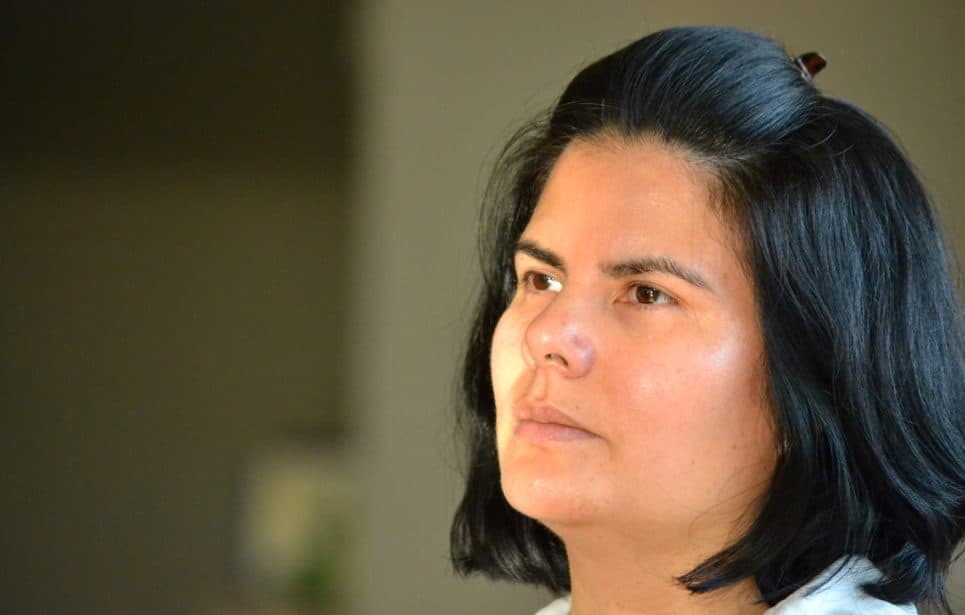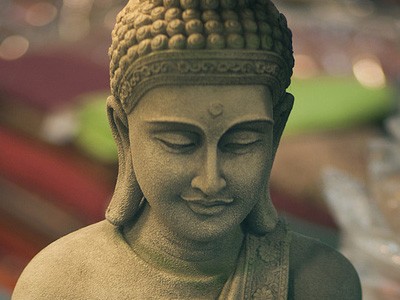Showing up for yourself
By K. S.

K. S. asked Venerable Thubten Chodron what it meant to be a good student and how to become one. She replied and also sent him a chapter on this topic from a book. This was his response.
When you spoke about being a good student, one thing you said was that a lot of people give up on themselves, others, and the Dharma when things get difficult. One thing I really like about Buddhism is the control it says you have. Karma allows us to say everything that is happening to us is our own responsibility—good or bad, we did it to ourselves. That’s hard for some people I’ve found out. The benefit of it is enormous, though, because it gives us the ability to say, “I don’t like what I’m going through; therefore I’ll change my actions so I get the result that I want.” That’s a lot of control over the one thing we can actually control, and it changes our whole life, environment, and world.
The chapter on the qualities of a good student brought to light that I have horrible qualifications, but that is okay because I’m an even worse Buddhist. What I’ve figured out, though, is that is a good thing. When I think of Buddhists, they’re peaceful, thoughtful, calm, and able to meditate for hours. Me—I have violent tendencies, I shoot off my mouth, I’m easily flustered, and I have the attention span of a Bee on Crack. That’s good, though, because I have so much potential for change, and I have a working path to achieve that. It’s great that I am the way I am because if I already had the qualifications of a “good Buddhist,” I’d have no reason to become one. It’s similar to taking a vow. You said that if we had the ability to keep them perfectly, we wouldn’t need to take them. Obviously I’m working on changing me, but it’s with the more gentle attitude that you talk about. After all, I’m not a Buddha and I’m in cyclic existence, so things are going to happen and I am going to make mistakes. That’s okay, especially if I learn from them.
You asked for my ideas on how to use the Dharma to retrain the mind in correct views and beneficial emotions and what meditations help that. First—and this is the biggest one—for me the most beneficial practice is showing up—to sit there and know there are a million other things that I’d rather be doing, but instead I’m showing up. For me meditation is not fun; it is one long litany of wrong thinking and destructive emotions. Meditation is not fun, but it is beneficial. Having to make sacrifices to show up makes me more mindful throughout the day. Why? Because I’d rather have coffee, smoke a cigarette, or go back to bed, but instead I meditate. Then later when I’m about to do something I shouldn’t do, I remember the early pleasure that I gave up in order to meditate. It’s like when you first learn the value of a dollar. Before, all you wanted was candy. Now you have to decide if you want candy or food. Real food. Again meditation is not fun, not sweet or colorful, but it’s better for your teeth and it keeps your body strong. Time is our greatest asset because we can’t get more. So what I invest in, what causes I create, are the only returns I can expect to get. So what’s the point of denying myself useless pleasure for thirty minutes in the morning if I’m going to sow misery for myself for eighteen hours in the same day?
I still have problems with doing a daily practice that I don’t feel obligated to do. But I can tell the difference, and so can others, when I show up to meditate with no motivation other than knowing it benefits myself and others. There is no immediate payoff. I’ve given up hoping for “wowwy kazzowy” experiences. Because my practice is not about that, I’m not sitting for amusement, pleasure, or entertainment. I already know that if those are my motivation, I’m going to be disappointed. I sit because I know it benefits us all.
I know that in past lives I’ve worked very hard to receive all the benefits I have now. So I try to remember that and keep that as my motivation, not wanting to let myself down, because apparently I thought it was very important to pursue this practice in past lives and I don’t want to be the one to drop the ball.
I, as well as the other guys in the Buddhist group here, have had strong emotions and experiences when doing the meditations on bodhicitta, beginning with equanimity. No matter how many times I do it, it feels like the first time every time. “My worst enemy was once my mother. How much they loved me then. How much I loved them. This is terrible—all the hatred I feel for them, my own mother.” That happens every time to me, as if it were the first time I realized it. It is always a powerful emotion—one of awe at the realization, one of sadness at my thoughts and actions towards my mothers, one of joy at having rediscovered someone so close to me. It’s a real smorgasbord of feelings and almost always leads towards generating bodhicitta. You don’t even have to know what bodhicitta is, you just naturally have this remorse for your actions and the desire to help your enemy because you see them as your mother and you have so much regret over the harm you have caused them that you would do anything to not have them suffer any more.
Incarcerated people
Many incarcerated people from all over the United States correspond with Venerable Thubten Chodron and monastics from Sravasti Abbey. They offer great insights into how they are applying the Dharma and striving to be of benefit to themselves and others in even the most difficult of situations.


